Djibouti, with its strategic Red Sea location and diverse population, sought to strengthen health system resilience and prepare for pandemic response. HISP Rwanda started working with Djibouti’s Ministry of Health in early 2021, focusing on retooling their existing DHIS2 instance and extending it for COVID-19 surveillance, while also reinforcing routine immunization tracking.
Our Work:
- DHIS2 Upgrade & Enhancement: In February 2021, HISP Rwanda led the upgrade of Djibouti’s DHIS2 platform from version 2.29 to 2.35, enabling enhanced dashboard features. We configured COVID-19 case reporting forms aligned with WHO guidelines, capturing variables like contact tracing, symptom onset, and quarantine status.
- Real-Time COVID-19 Surveillance: We developed a custom COVID-19 dashboard that displayed daily case trends, test positivity rates, and hospital bed occupancy. This dashboard pulled data from COVID-19 testing centers and integrated with laboratory information systems to automatically update test results.
- Immunization & Maternal Health Modules: Simultaneously, HISP Rwanda configured data elements for routine immunization (pentavalent, OPV, measles) and maternal health indicators (ANC registrations, facility-based deliveries). This allowed the Ministry to monitor whether COVID-19 disruptions were affecting routine services.
- Capacity Building & Virtual Training: During the pandemic, in-person workshops were limited. HISP Rwanda delivered a series of virtual DHIS2 training sessions in French and Arabic via Zoom. Over three months, 250 participants (data managers, epidemiologists, and district nurses) attended sessions on data entry, dashboard usage, and COVID-19 analytics.
- Data Quality & Remote Mentorship: Recognizing that many health workers were reassigned to COVID-19 duties, we instituted a remote mentorship program where HISP mentors reviewed data quality reports weekly and provided feedback via WhatsApp and email. This ensured consistency even when staffing fluctuated.
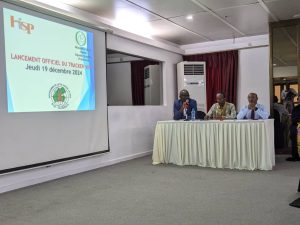


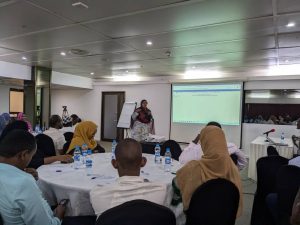
Impact:
- COVID-19 Response: Djibouti’s health authorities tracked confirmed cases and contact tracing metrics on the DHIS2 dashboard, enabling rapid isolation of hotspots. The time from sample collection to result publication decreased from 48 hours to 24 hours.
- Routine Services Monitoring: Despite lockdowns, the immunization coverage dip was limited to 8% compared to pre-COVID baselines, as the Ministry could identify defaulters and deploy mobile immunization teams.
- Capacity Strengthening: Virtual training sessions allowed participants from remote regions like Tadjourah and Obock to continue learning without travel disruptions.
Partners:
- Ministry of Health, Djibouti: Coordinated COVID-19 strategy and endorsed DHIS2 upgrades.
- World Health Organization (WHO): Provided technical guidelines for COVID-19 data elements and supported dashboard validation.
- UNICEF Djibouti: Funded mobile data bundles for remote data entry and provided masks and PPE for training events.
- African Development Bank (AfDB): Sponsored solar power installations in rural health posts to keep Internet connectivity stable.
Lessons Learned & Future Plans:
Hybrid training (virtual + small in-person cohorts) proved highly effective. HISP Rwanda plans to expand DHIS2’s scope to integrate community health programs and develop an offline-first COVID-19 screening app for border screening posts by mid-2025.
HISP Rwanda led a project to implement the HIV Tracker using DHIS2 in Djibouti, as part of a broader initiative to strengthen health systems and improve HIV/AIDS data management. This project was supported by a new Global Fund grant (2024–2026) aimed at enhancing data collection, analysis, and strategic use for HIV, tuberculosis, and malaria programs in Djibouti.
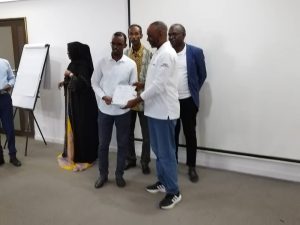
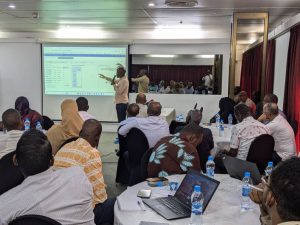
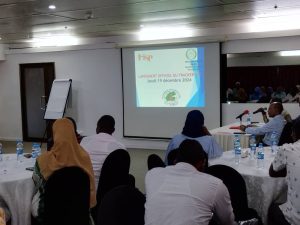
Project Objectives
-
General Objective:
To obtain high-quality case-based HIV data from decentralized health facilities up to the central level, enabling the production of informative reports for strategic decision-making and resource allocation. -
Specific Objectives:
-
Configure the DHIS2 HIV Tracker to capture and monitor patient data for those receiving HIV services.
-
Develop and integrate key HIV program indicators for monitoring and evaluation.
-
Provide user guides and technical support for the HIV Tracker tool.
-
Build the capacity of technical staff and end-users for effective use of DHIS2 in health data management.
-
Methodology and Implementation
-
Collaboration and Communication:
HISP Rwanda worked closely with Djibouti’s national HIV/AIDS program team. Due to initial geographic separation, communication was conducted via email, WhatsApp, and Zoom meetings. This ensured regular updates, rapid response to urgent issues, and efficient sharing of documents and feedback. -
Technical Approach:
-
Two technical teams were formed: one from HISP Rwanda and one from the national HIV/AIDS program.
-
The project began with a presentation of the standard HIV Tracker (developed by the University of Oslo and WHO) to familiarize the client with its structure and functionalities.
-
The client team was given access to the standard tracker to explore and suggest customizations for the local context.
-
The implementation was divided into key stages: patient enrollment, counseling and testing, case file opening, medical history and assessment, ART initiation, follow-up and ART renewal, and maternity.
-
Each stage was configured based on local needs, such as accounting for the significant number of migrants in Djibouti.
-
Regular online meetings (twice weekly) were held to review progress, discuss feedback, and approve each stage before moving forward.
-
-
On-site Activities:
After initial remote work, HISP Rwanda’s technical team traveled to Djibouti for two to three weeks to finalize configuration, set up training and production servers, test the product, create training materials, and conduct training-of-trainers sessions.
Key Results
-
The DHIS2 HIV Tracker was customized and configured to meet the specific needs of Djibouti’s national HIV program.
-
Key HIV program indicators were defined and integrated into the system.
-
Technical staff and end-users were trained on effective use of the tracker.
-
A testing phase was conducted to identify and resolve challenges before national rollout.
-
The tracker was successfully deployed across all relevant health facilities, ensuring comprehensive HIV data collection nationwide.
Challenges and Adaptations
-
The need to adapt certain tracker elements to local realities, such as migrant tracking and specific data fields.
-
Extension of the on-site mission to ensure thorough configuration, testing, and user training.
The project, led by HISP Rwanda in partnership with Djibouti’s Ministry of Health, established a robust digital system for individual HIV case management. This initiative is expected to significantly improve evidence-based decision-making and public health outcomes for people living with HIV in Djibouti.